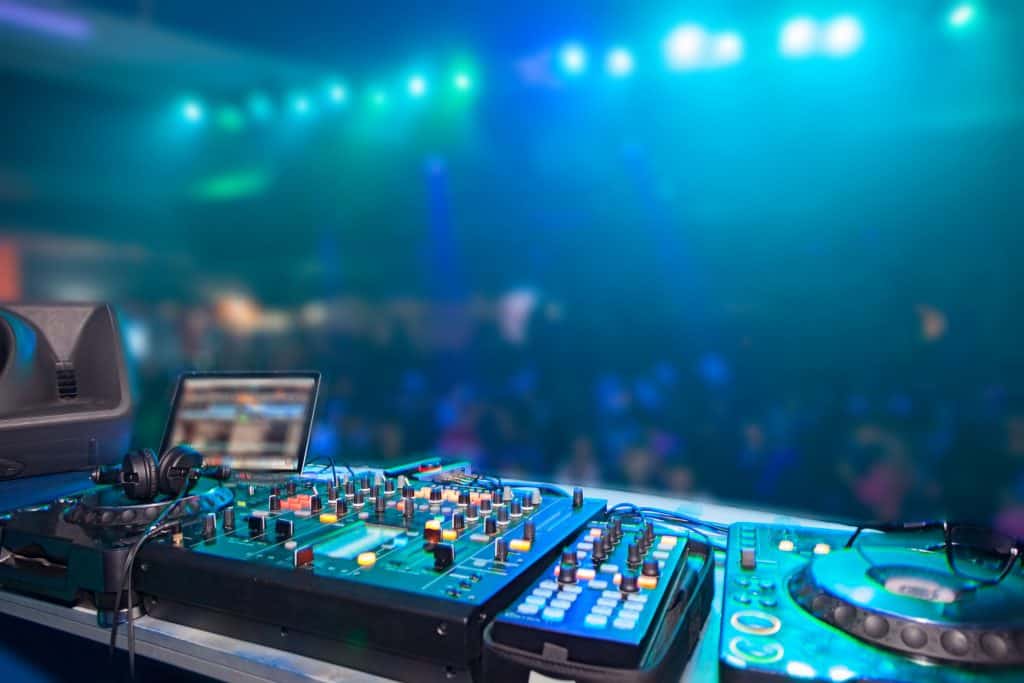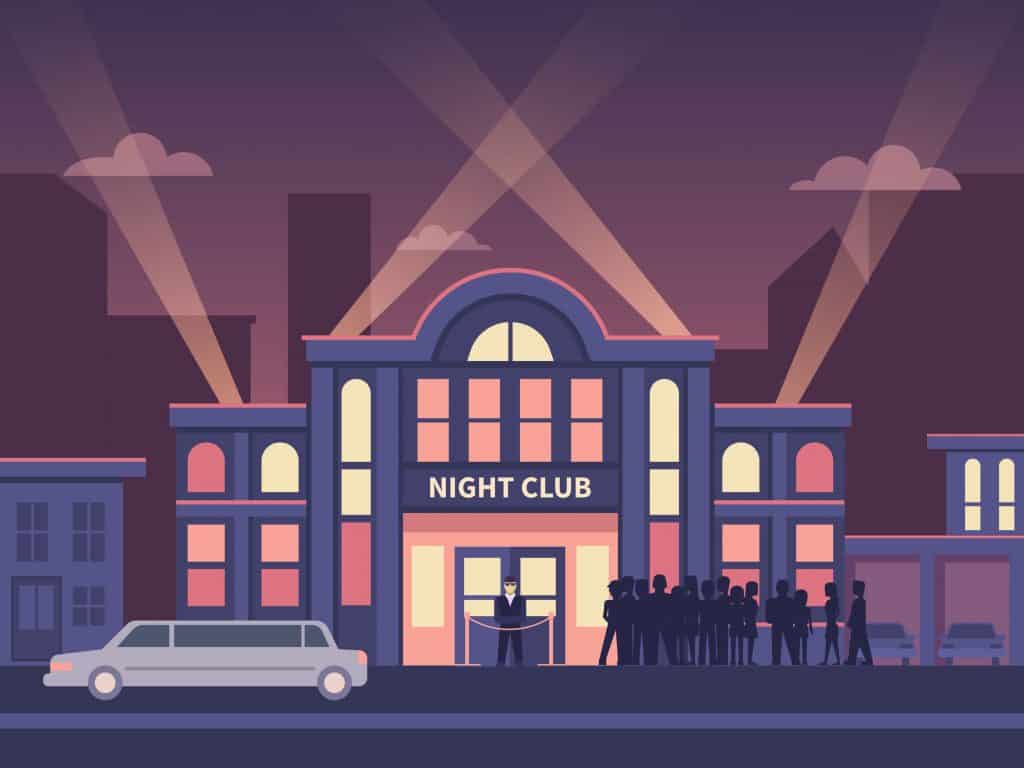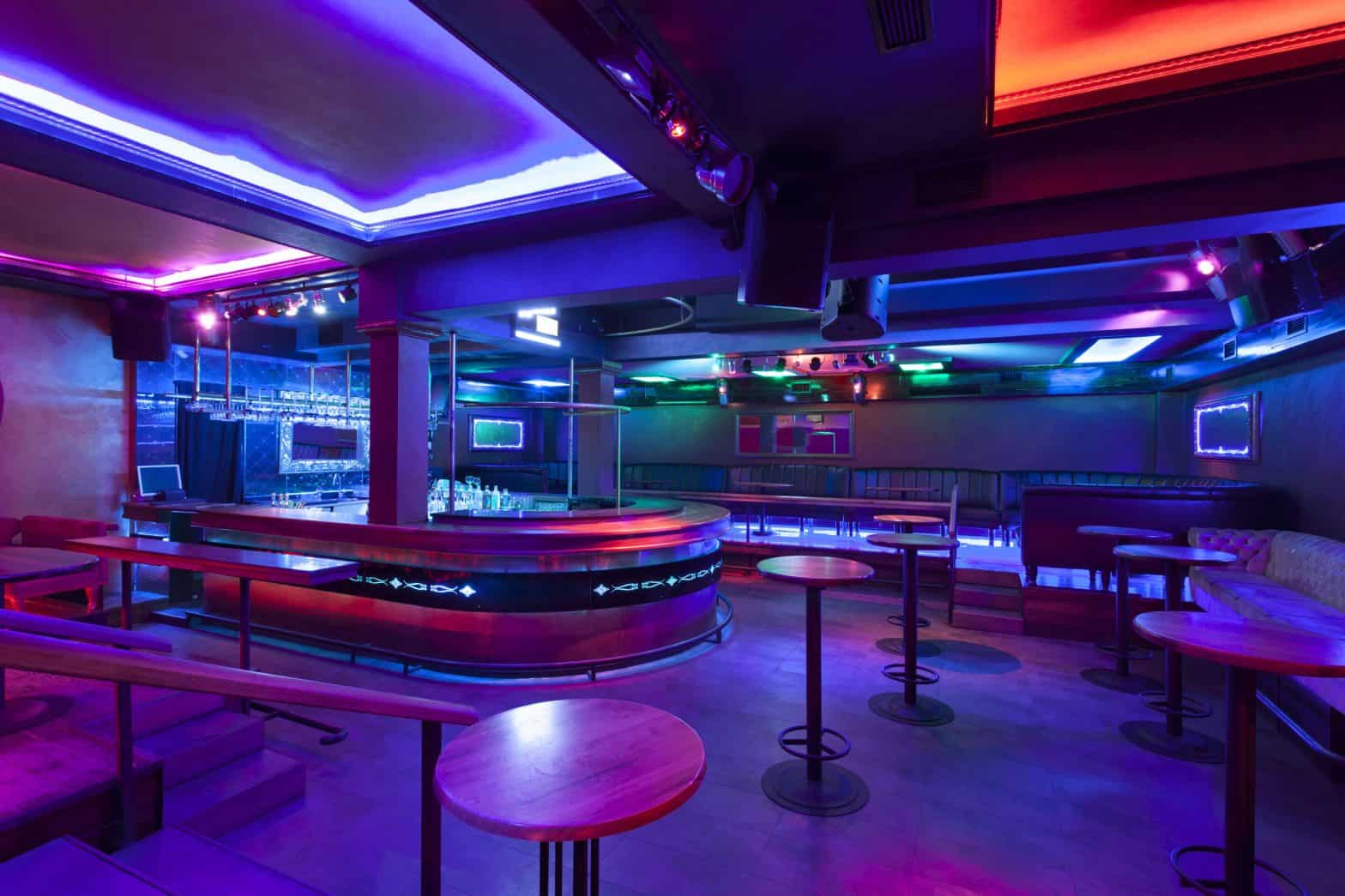Maybe you are a new DJ ready to get your first gig under your belt. But you might be wondering whether you should plan to bring your equipment to use or if the venue will have equipment there that you can use.
DJs can choose to bring their equipment to a venue. Bringing equipment may be necessary if the venue doesn’t have it or if the DJ isn’t comfortable with the provided equipment. However, if the venue already has equipment a DJ can confidently use, this may be easier than setting up their own.
Keep reading to learn more about bringing your DJ equipment to a venue, including what items to bring and when you’ll need them.
Do DJs Bring Their Own Equipment to a Venue?
The answer to whether a DJ should bring their equipment to a venue will vary in each situation. Sometimes, venues will not have DJ equipment available to use. In this case, you’ll, of course, need to bring your equipment. Others may only have a few pieces of equipment, such as a sound system, and expect you to bring the rest.
Some venues will have equipment available for use, but it may differ from the brand or type of equipment you are used to and have learned. When this situation happens, you should communicate with the venue to determine if you may bring your equipment. If you may, you should probably do that rather than learn their equipment and risk a bad performance.
Some venues will have the equipment and prefer that you use it rather than bring your own. They might prefer that for the reason that setting up your equipment could be inconvenient and time-consuming. If a venue expresses to you that they want you to use their equipment, you should respect their wishes and do some research and probably also practice beforehand if you don’t feel comfortable with the equipment they provide.

What Equipment Do DJs Bring With Them to Venues?
These are some items that a DJ will need to perform a gig at a club or other venue. This list includes the basics, but there are additional accessories that DJs like to use or that may be provided by some venues:
- Turntables
- Mixer
- Music software
- Headphones
- Sound system
Some DJs in the digital age are using DJ controllers. Using DJ controllers is a way to use DJ software on, for example, a laptop. This equipment may be worth looking into, as it can be easier to use and easier to transport, as a laptop will be much more lightweight than full DJ equipment set up.
However, some venues do not allow laptops and require that DJs use the more classic equipment listed above. So, even if you have a controller, be sure that you are still knowledgeable about using that other DJ equipment.
Another optional piece of equipment in a DJ setup is lighting. Lighting and other visual effects can set the tone for your gig and get the crowd excited.
Items To Bring to Every Venue
To be fully prepared to give a great performance, these are the items that you’ll want to bring to every single venue, regardless of what equipment they already offer:
- Headphones: In most cases, venues and clubs do not provide headphones. Even if they do provide them, it will be a good idea to bring your own, as you’ll want to be sure you have a pair that you can wear comfortably for several hours.
- Different music storage devices: Having music is probably the most important part of a gig, so you’ll want to bring music stored on a USB flash drive and maybe even on CDs in some cases. With these storage devices, you can play your music on a variety of different setups.
- Cables: Some venues won’t offer cables, and even if they do, they could be old or damaged. Always bring your own to be safe and provide great music quality.

What Do Venues Provide for DJs?
As mentioned earlier, the equipment that a venue provides can vary greatly, and they can even provide none. However, many venues will at least provide the sound system.
If you’re new to DJing, playing smaller gigs at local bars or lounges is a common way to get started. Chances are, these types of venues will provide very little, and you’ll need to be prepared to bring your equipment and setup, as well as cables and adapters.
If you’re playing at a club, it is usually a standard for these venues to provide a full DJ equipment setup, as they’ll regularly host DJs. However, you should still reach out to find out what they provide and visit the club beforehand if possible.
Common DJ Setups at Venues
If you’re a beginner, the chances are that you’ll run into equipment that you aren’t familiar with at some point. These are the most common DJ equipment setups at venues; it might be a good idea to familiarize yourself with these so that you can prepare no matter what a venue requires:
- Pioneer CDJ-2000NXS2 and the DJM-900NXS2 mixer
- Denon DJ SC5000 Prime media player and X1800 Prime mixer
- Serato DJ software that is compatible with both Pioneer DJ and Denon DJ
In any situation, communication with the venue at which you’ll be performing is key. It may also be helpful to visit the venue before your performance to familiarize yourself with the place and what equipment they offer. For example, you could show up early or plan a visit a few days in advance.
Either way, make sure that the manager or another knowledgeable employee is available to meet you and answer any questions you may have. Such help will allow you to be prepared and help avoid any surprises when you arrive at the venue.
Setting Up DJ Equipment at a Venue
If you’ve determined what equipment you’ll need to bring to a venue, you’ll want to determine how much time you’ll have to set it up.
In some situations, you’ll be able to arrive a few hours before the gig even starts to get your equipment set up. You can use this time to familiarize yourself with the place and ensure that you have everything you need.
At other venues, you may be coming in after another DJ just finished performing. You’ll want to keep the energy going, so you’ll need to be prepared to set up quickly and have a way to play music while you set up. We can see this necessity of quick setup as another reason why a DJ will choose to use a venue’s equipment if it is available.
Once again, it is important to communicate with your venue to determine how much time to set up you’ll have and what your setup will be. This knowledge will allow you to arrive knowing what to expect and being ready to please your crowd and the venue.
Conclusion
When starting as a DJ, you’ll probably experience various settings and situations regarding your DJ setup. It is important to take time to practice, prepare, and do your research before a gig so that you can give the best performance possible. This time investment will be very helpful in continuing your DJing career, as venues will invite you back, and other venues will invite you based on great reviews and recommendations.


1 comment